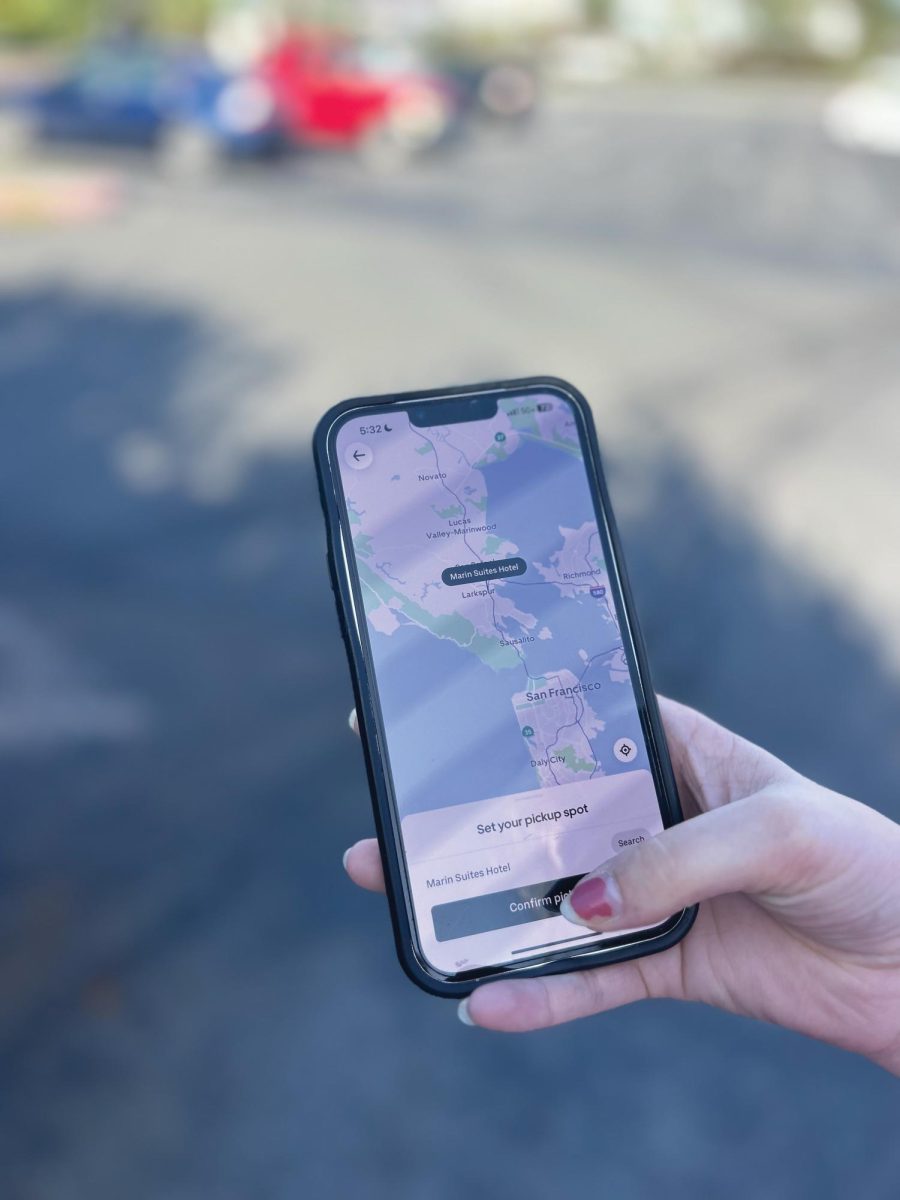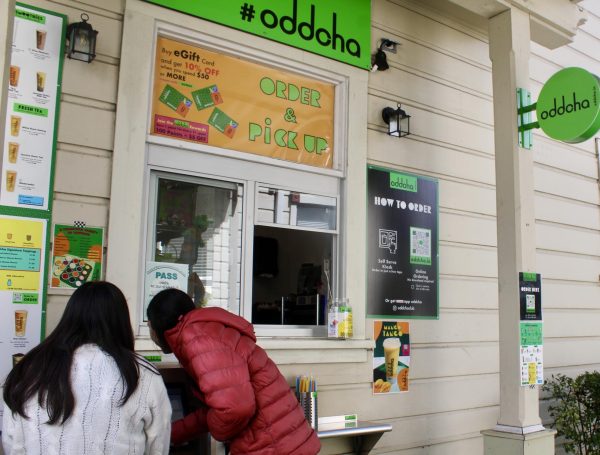Is digital meditation the new form of relaxation?
September 15, 2019

No matter from where stressed is derived, it is an ever-present factor in teenagers’ school, home and social lives. According to the National Institute of Mental Health, 9 percent of American teens have an anxiety disorder. As teens, we need to be conscious about the state of our mental health and manage stress effectively. The Mayo Clinic reports that meditating not only improves emotional well-being, but also helps manage symptoms of certain medical conditions. This proves we should take advantage of meditation made accessible by the digital world. Here are four ranked relaxation apps to help relieve stress.
Calm:
4.5 stars
Cost: $59.99 annually
Calm has an Editor’s Choice Award from the Apple app store, which got me really excited to try it. When you first open the app, it asks you to take a deep breath, which sets the mood for meditation. You can also pick from 35 different moving backdrops with white noise (sounds of nature) on the home page. The main features of the app include sleep stories and guided meditations. However, many of the different episodes are unavailable without a subscription. Fortunately, there is a one-week free trial beforehand. I listened to “Blue Gold,” one of the sleep stories, but I prefered the guided meditations because the heavily-informational stories can be overwhelming. The only guided meditation series that is fully available without a subscription is “7 Days of Calm,” which lectures about the significance of mindfulness while also teaching breathing exercises. Calm also has a free respiration tool that can be customized to your breathing and instruct you when to inhale and exhale, something useful when on the go. Overall, Calm was a very tranquil experience, aside from the

Calm posts your most recently explored meditation series against your immersive background of choice.
inconvenient subscription cost. I highly recommend the guided meditations, as they are not only soothing but aim to break the stigma around mental health.
Aura:
4 stars
Cost: $59.99 annually with a one-week free trial
Aura, first asks for an account and what you hope to achieve through the app. A feature I find particularly clever is that the app asks you for your current mood and then opens up a guided meditation session based off of it. As you listen to the meditations, you can manipulate what type of white noise (sounds of nature) and music you hear, which adds tranquility to the experience, but what I found most interesting were their sleep stories and life coaching. The sleep stories are more personal and reflective, making them a nice way to unwind, and the coaching offers advice on how to manage stressful emotions. Aura also allows you to keep a gratitude and reflection diary; I’ve always found writing concerns down to be especially therapeutic, so for those who express their worries in such a way, this is a great addition. Aura may be pricey for teens, but compared to Headspace, which is more expensive, it’s worth the price.

Aura includes a unique gratefulness journal which can be updated at any time.
Breethe:
3 stars
Cost: $155.88 annually, plus a two-week free trial
Breethe asks you to explain why you want to meditate by picking out options from a list (happiness, relaxing, relieving stress and anxiety) when you first create an account. Although Aura has the same feature, Breethe is slightly different. It organizes guided meditations under the categories you picked, so if you wanted to work on becoming happier one day and relieving stress the next, it’s easier to do so. I also listened to some of their hypnotherapy—which, according to Psychology Today, is guided hypnosis—more specifically to an episode called “Spiritual Healing.” It focuses on getting rid of blocks in your personal energy field, or aura, that you’ve been carrying since your past lives. It also warns listeners to open their eyes to remind themselves they are safe if they feel too disturbed. This was way too intense and honestly stressed me out more than it relaxed me, so I don’t recommend using their hypnotherapy

Breethe sorts meditations into the goals you want to work on.
unless this type of mindfulness appeals to you. Additionally, their ASMR section was mediocre at best because some of the sounds were too loud and not entirely soothing. Breethe offers a wide range of meditation options but is not worth the price.
Headspace:
2.5 stars
Cost: $69.99 annually or $12.99 a month
Headspace, like Calm, also has an Editor’s Choice award. Upon opening the app, you are asked to create an account and a personal meditation plan based on your past experience with meditating, your sleep schedule and what you aim to use the app for (relieving stress, becoming healthier, personal growth, work and productivity). Although this is a great way to ease people into mindfulness, the app’s cartoonish theme disrupts the relaxing vibe. As soon as Headspace finished creating my personal meditation plan, it opened up a short guided meditation session.

Exploring different meditation sessions on Headspace is made easy with distinct categories.
The male narrator’s voice was not entirely relaxing and he occasionally hesitated. Put off by the introductory meditation, I moved on to another series. This time, I switched to a female narrator. She was, in fact, worse than the male narrator, as she failed to sound engaged, which in turn failed to interest me. Just like Calm, Headspace requires a subscription to unlock all its features, but there is almost nothing available without one. The price is not worth the quality of the product.






















